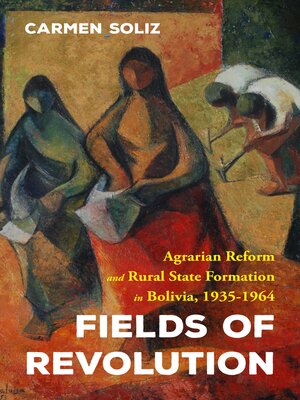Fields of Revolution
ebook ∣ Agrarian Reform and Rural State Formation in Bolivia, 1935-1964 · Pitt Latin American
By Carmen Soliz

Sign up to save your library
With an OverDrive account, you can save your favorite libraries for at-a-glance information about availability. Find out more about OverDrive accounts.
Find this title in Libby, the library reading app by OverDrive.



Search for a digital library with this title
Title found at these libraries:
| Library Name | Distance |
|---|---|
| Loading... |
Winner, 2023 CLAH Susan Socolow-Lyman Johnson Book Prize<br><br><i>Fields of Revolution</i> examines the second largest case of peasant land redistribution in Latin America and agrarian reform—arguably the most important policy to arise out of Bolivia's 1952 revolution. Competing understandings of agrarian reform shaped ideas of property, productivity, welfare, and justice. Peasants embraced the nationalist slogan of "land for those who work it" and rehabilitated national union structures. Indigenous communities proclaimed instead "land to its original owners" and sought to link the ruling party discourse on nationalism with their own long-standing demands for restitution. Landowners, for their part, embraced the principle of "land for those who improve it" to protect at least portions of their former properties from expropriation. Carmen Soliz combines analysis of governmental policies and national discourse with everyday local actors' struggles and interactions with the state to draw out the deep connections between land and people as a material reality and as the object of political contention in the period surrounding the revolution.







